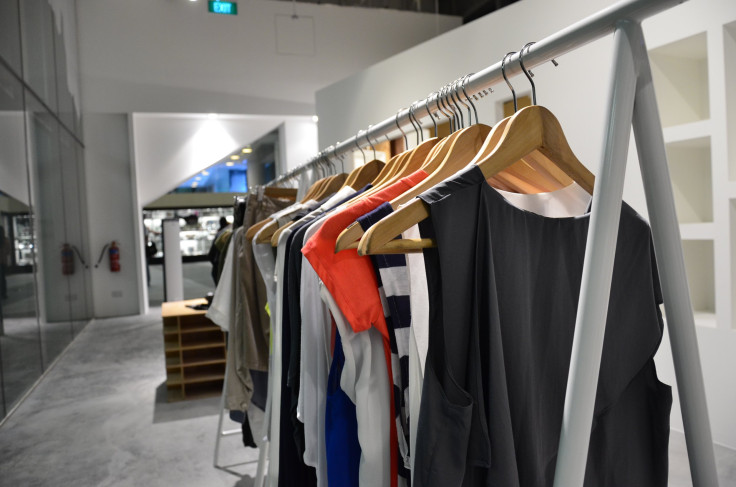Overweight Men Have It Rough, Too: Fat Discrimination While Shopping Or Applying For A Job Is The Same, Regardless Of Gender

Though the past few years have seen great strides in illuminating the struggles that overweight people face socially, that focus has largely remained on overweight women. And while overweight women absolutely do face unique challenges in industries such as fashion, that spotlight can obscure the similar disadvantages that their male counterparts encounter as well.
Perhaps as to a remedy to that, a recent study published in the Journal of Applied Psychology purports to show that overweight men face weight discrimination in real-world settings too, whether it’s shopping for clothes or applying for a retail job. In a related lab experiment, the authors also found that customers being sold products by overweight people, whether male or female, were more likely to view the products negatively than if they were sold by thinner individuals.
"We were interested in looking at biases toward men who are heavy in employment settings," said study author Enrica Ruggs, assistant professor of psychology at University of North Carolina, in a statement released by Rice University, where Ruggs earned her doctorate. "A lot of the research that has looked at weight stigmatization or discrimination toward heavy people has tended to focus on women. It's perceived as more of a critical issue surrounding women, so we wanted to see if men experience some of the same types of detriments that women face."
Legal And Subtle
To test out their theory, Ruggs and her colleagues first recruited thin men to either apply for retail jobs in the Southern U.S. or pose as customers while following a written script. Unbeknownst to anyone outside of the experiment, however, the same men then visited other stores with prosthetics appearing to make them look overweight and performed the same actions. Across all their visits, the men rated the level of interpersonal discrimination they felt during their interactions, which was backed up by third-party observations made discreetly by an experimenter shadowing the men.
"They didn't experience 'formal' discrimination or illegal types of discrimination. Before we had the actors apply for jobs, we confirmed the company was hiring. None of the overweight men were kept from applying for positions," Ruggs explained. "But they did experience greater amounts of interpersonal discrimination or subtle negative behavior toward them. Employees they interacted with would try to end the interaction early, there was less affirmative behavior like less nodding or smiling; there was more avoidance types of behavior like frowning and trying to get out of the interaction."
Specifically, on a 1 to 6 scale measuring discrimination, the average score given by the men when thin was 2.0 vs. 2.3 when overweight. Though that difference may seem small, Ruggs explained these perceived slights can certainly add up. "It suggests that men who are heavy are experiencing really negative behaviors more often than men who are not heavy," she said. "Their chances of getting employment could be less, or if they're shopping as customers, it has implications for their decision-making processes in terms of purchasing things."
It should be noted that Ruggs’ initial experiment leaves unanswered the question of whether overweight women may actually experience a similar (or worse) level of discrimination in these settings.
In the second experiment, the researchers recruited both men and women to pose as sellers of “neutral” items such as luggage in a series of marketing videos, five in total. Once again, test subjects were shown either thin or overweight actors, and once again, they judged overweight individuals more negatively, which in turn degraded their opinion of the product being sold to them as well as the organization the employees represented. In particular, overweight sellers were more likely to be thought of as unprofessional slobs than those thinner, to a degree similar in both genders.
Though these results are disheartening, Ruggs and her team do believe there are proactive steps we can take to reduce weight discrimination. "One of the problems is that people currently have very few positive images of heavy individuals excelling in work settings. Organizations can try to influence perceptions and attitudes about heavy employees by positively highlighting these employees and individuals more in overall marketing and branding efforts," Ruggs said. "It's time to change the narrative of what is considered normal, beautiful and professional. One step is to provide better role models through the messaging that is out there, be it through media advertisements as well as through equitable hiring of employees of all sizes who interact with customers."
Source: Ruggs E, Hebl M, Williams A. Weight isn’t selling: The insidious effects of weight stigmatization in retail settings. Journal of Applied Psychology. 2015.



























